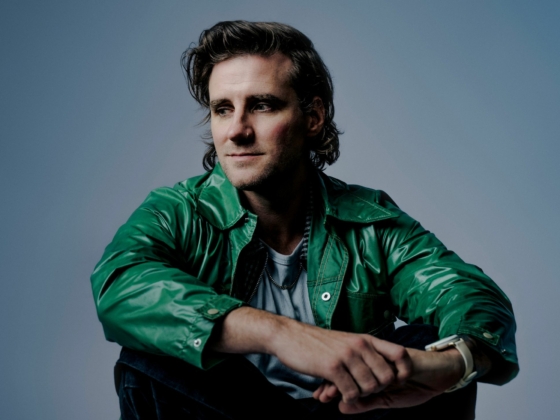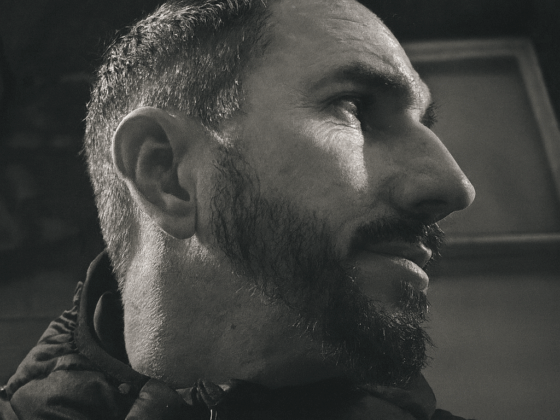It was all too sudden and tragic to enter into a post-Youth Lagoon world back in 2016. The then 26-year-old Trevor Powers had released several groundbreaking albums and a handful of singles under the moniker, each receiving their own mix of accolades and praise. For a brief moment, the artist was defining the indie scene. To step away from the project seemed premature, especially at such a young age and with an ever-swelling fanbase. But in a final letter posted to the now-deceased Youth Lagoon Twitter account, he explained that the project had devolved into a kind of creative asphyxiation.
"It’s odd to realize that something you’ve created can have the power of wrapping a leash around your neck & holding you hostage,” he wrote. From there Powers's public image went silent, and the world slowly began to move on.
It wasn't until May of this year that we finally heard from the artist in the form of a new single and a handwritten letter announcing his intention to no longer hide behind any pseudonyms that might ensnare rather than excite. "This project is the beginning of something new; not the continuation of something old,” it read.
And now, as 2018 begins to roll to a tumultuous yet prolific close, a growing buzz has taken over the industry. Earlier this month Powers unveiled Mulberry Violence, his first full-length release under his own name. At last, our mighty protagonist had returned.
However, as the artist prophesied himself, the previous sonic landscape of Youth Lagoon has been burnt to the ground. The new album is a radical departure from Powers's alt-rock origins. Take a look at the release's artwork, his Instagram, or new website and you find an aesthetic mirroring Oneohtrix Point Never's Age Of and its mythopoetic decor. But the comparison doesn't stop there—Powers dives headfirst into a pop-centric exploration of IDM. With spliced vocal samples, looped static, and jagged pops and plinks, the album holds its own as an experimental landmark of concise songwriting and world-bending compositions.
The opening track, "XTQ Idol," is served hot and juicy, spouting a collaged mess of samples while remaining ever poignant and alive. The immediacy of sustained piano chords and compressed harmonies fill us up with the opulent, the familiarity of a bygone era pulled apart and sewn back together. Not to be cyclical here, but I'd go as far as to call it a more palatable and pruned evolution of OPN's Age Of. Where the experimental Brooklyn-based artist transformed recycled and orchestral sound into noisy curiosities, Powers seems to fasten together a more cohesive construction. Instead of the erratic juxtapositions found in "We'll Take It" or "The Station," we get something new and more sure of its place in the world.
Both Age Of and Mulberry Violence play with tapestries of dissonance as legitimate melodic leverage points, but the latter packages the experimentation into something so much more apprehendable. As a wall of warm static emerges on "Dicegame" I can follow the ebb and flow of verses. The chorus of looped screeches hit at just the right mark, eventually arpeggiating towards a resonant slam of the piano. In spite of disfigured croons being ground into what sound like compressed bird calls, it all feels expertly calculated.
Now, I'm sure some of you are beginning to foam at the mouth here. I mean no disrespect to OPN or Age Of. He's an ambient pioneer who's shattered and rebuilt so many musical tropes (not to mention his multimedia work) that he deserves his own category of creator. Aside from power electronics and straight up noise, he takes all his projects to the edge of listenability—and in a good way. His releases constantly beg the question, what can a song be? And Age Of is no different. In fact, for me, it's been a highlight of this year's releases. Tracks like "Toys 2" and "Warning" transform sound mutilation into the most seductive theatrical events. But like many other experimental acts, before OPN can wow you, he must ask for your patience, your surrender. How else do we accept novelty as listeners?
This is where Mulberry Violence shines. No doubt because of Powers's beginnings as a more conventional songwriter, tracks like "Clad In Skin" adhere to a more basic structure. You've got your verses, chorus, bridge—but like all great musicians, the artist makes it feel like nothing you've ever heard before. The crunch of a sax and the serrated monastic refrain add up to some cathartic glitch-pop that easily enthralls. "Playwright" is another great illustration with its bulging hesitancy. The soft pluck of strings are immediately tender. Little variations in key add to the momentum rather than subvert it. Before Powers even begins singing, he's already got your number.
On the artist's website, one of the first pieces of texts you confront is a small manifesto-ish proclamation of the album. Ornamented in the same style as the release's cover art (no doubt also designed by Baptiste Bernazeau, the graphic artist responsible for the artwork and much of Powers's current online presence), the text follows a similar logic as the artist's previous letters to his fans. This time hopefully speaking from a place of creative blossoming instead of mourning, his words give us a bit more context as to the album's inception:
"Mullberries wait until the danger of frost is completely gone before they begin to bud, at which point the budding occurs overnight. They are patient. They are restrained. They are calculated. They are everything we're not. […] We've been told to douse fires, but we've been handed a torch. Should it be a surprise that the world is burning? Mulberry Violence is the intersection between these two dimensions."
We can certainly hear this existential shock and abandonment on "Film It All" as clipping static launches airstrikes alongside Powers's vocals. On "Ache" we get a taste of anger channeled into rebellious rejection as if someone gave Gotye a MIDI pad and a more traumatic childhood.
"Common Hoax," the album's closing track, feels touchingly familiar. I'm reminded of The Year of Hibernation's more tempered and meditative somberness as Powers slows down for a tenuous piano ballad at the 2:55 mark. The abrupt segue catches me off guard. His vocals dig deep with emotion, unscathed by effects. There's nowhere to hide, and suddenly an album plump with sonic contortions is left behind. It's just us in a room with Powers. We can't move. The gentle voice of a 29-year-old quivers with humanity, and it's almost too much.
Connect with Trevor Powers: Facebook | Instagram | Twitter | Official Site











